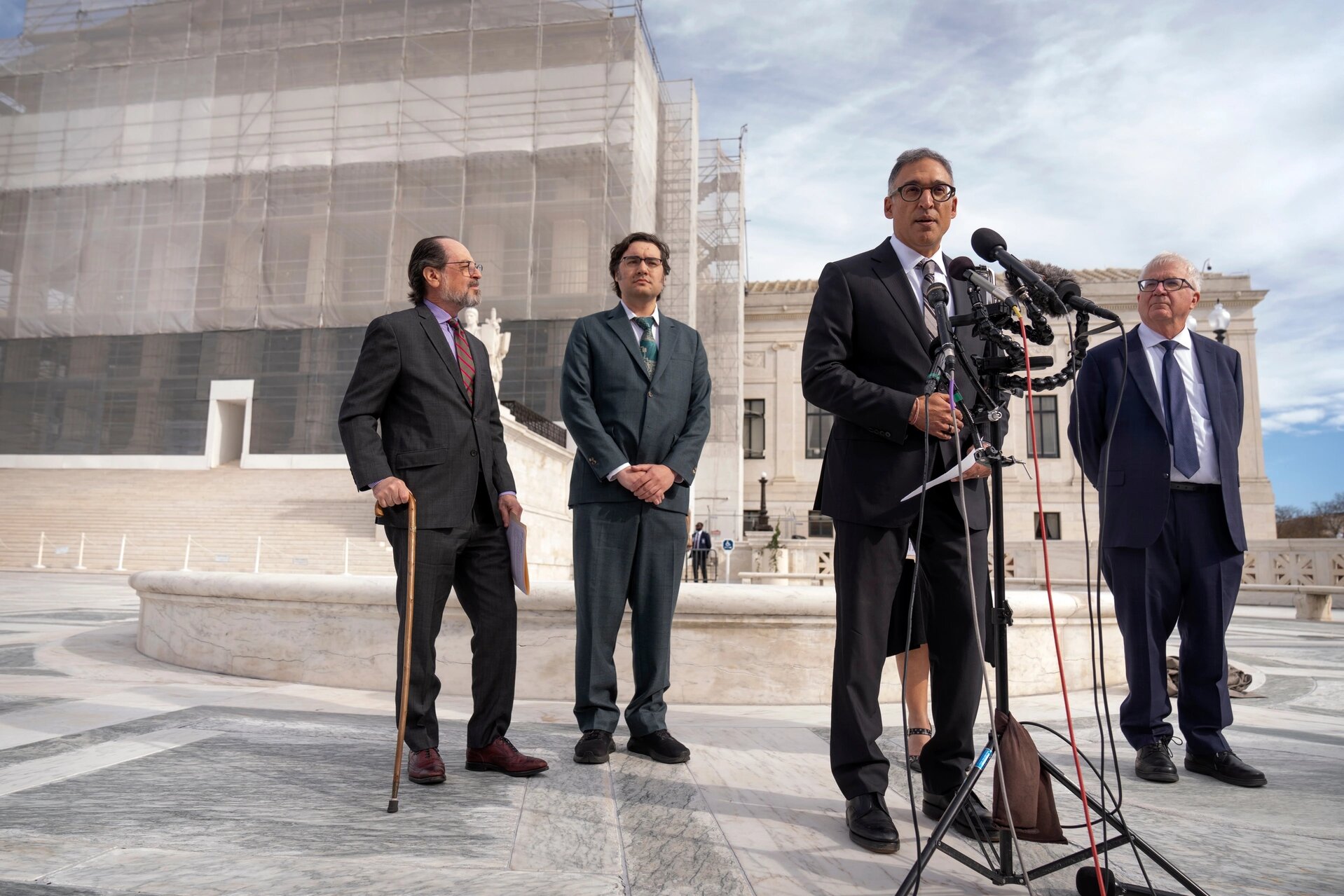Justice Amy Coney Barrett cautioned during oral arguments Wednesday that the logistics of refunding companies that have paid the disputed duties would be “a mess.”

The Supreme Court on Wednesday contemplated the process for paying back billions in tariffs the Trump administration has collected, should the justices rule those duties are illegal.
“How would this work? It seems to me like this could be a mess,” Justice Amy Coney Barrett asked Neal Katyal, the lead counsel representing a group of small-business plaintiffs. Those businesses, along with a dozen Democratic-led states, have challenged the duties Trump imposed on dozens of countries under a 1977 law known as the International Emergency Economic Powers Act, in a consolidated set of cases that has speedily worked its way through the federal court system.
Katyal told the court that only the businesses directly involved in the case before the Supreme Court would automatically be entitled to refunds should the tariffs be struck down, noting that others would likely have to challenge the duties through a separate process to protest duties that have been paid.
“With respect to everyone else, there is a whole, specialized body of trade law,” Katyal said, spelling out the procedures. “It’s a very complicated thing. There’s got to be an administrative protest,” he added, noting that similar reimbursement procedures have often been lengthy.
“So, a mess,” Barrett responded.
“It’s difficult, absolutely. We don’t deny that it’s difficult,” Katyal said, but he pointed to past cases where judges determined that “economic dislocation” is not a reason to make a decision, suggesting that potential repayment issues should not factor into how the justices rule.
Three courts have already ruled against Trump’s use of the emergency law to raise duties on individual countries, and justices from both the conservative and liberal wings of the court expressed skepticism Wednesday that the president’s tariff gambit is legal.
If the Supreme Court upholds the previous court rulings, Justice Samuel Alito wondered aloud whether the justices should “get it over with” and address the issue of refunds, although he did not elaborate on what that process would look like. The court has wide discretion over whether to weigh in on the issue, or leave it to lower courts.
Trump’s Justice Department has acknowledged in legal briefs released in recent months that if the tariffs are ruled unlawful, importers would likely be entitled to refunds, which Customs and Border Protection would likely process through standard administrative procedures.
Katyal noted that in earlier filings, the Trump administration had opposed suspending the tariffs while litigation played out in lower courts, arguing that funds could be returned if the tariffs were ultimately overturned. But more recently, the president and senior administration officials have repeatedly warned that forcing the government to repay the tens of billions of dollars generated in tariff revenue would be disastrous.
“I think it’s rich for the government to be making this argument about the refunds,” Katyal said.
He reminded the justices that the Supreme Court has wide discretion over whether and how to order any refunds, pointing to past cases where the court limited remedies to the parties before it, or structured relief narrowly to avoid unintended consequences. Katyal noted that the court has stayed or limited decisions to let the congressional process play out, suggesting it could take a similar approach in the tariffs case. “There’s lots of possibilities,” he said.
Trade and customs experts have repeatedly described any potential repayment process as a logistical “nightmare” for both the federal government and the companies seeking compensation.
Repaying the tariffs would require identifying which companies are owed money and determining how to administer payments months after the duties were collected, at levels far exceeding what Customs typically handles. Many companies also outsource their customs paperwork, meaning refunds could first go to third-party brokers and require additional approvals before reaching the businesses that paid the tariffs.
The current process for protesting tariff fees allows entities to seek refunds within 180 days of payment. That timeline could further complicate repayments, if the Supreme Court opts not to render a final decision until next year.
Bloomberg reported last month that some Wall Street banks are arranging deals that let investors buy the rights to potential tariff refunds from companies at a discount, giving the businesses upfront cash while offering investors a chance to profit if the Supreme Court rules the tariffs unlawful.
